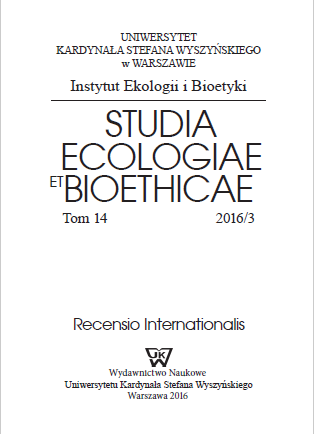Microbial properties of soil fertilized by sewage sludge and cultivated with energy crops
Microbial properties of soil fertilized by sewage sludge and cultivated with energy crops
Author(s): Ewa Górska, Wojciech Stępień, Izabela Olejniczak, Stefan PIETKIEWICZ, Hazem M. Kalaji, Paweł KowalczykSubject(s): Agriculture, Energy and Environmental Studies, Environmental interactions
Published by: Wydawnictwo Naukowe Uniwersytetu Kardynała Stefana Wyszyńskiego w Warszawie
Keywords: organic fertilizer; Miscanthus; microorganisms; Virginia mallow; Common osier willow;
Summary/Abstract: The microbial activity of soil enriched with sewage sludge and cultivated with energy crops, is little known. The aim of this study was to assess the impact of sewage sludge fertilization on selected microorganisms in soil cultivated with the following crops: Miscanthus (Miscanthus x giganteus Greef et Deu), Virginia mallow (Sida hermaphrodita (L.) Rusby) and Common Osier willow (Salix viminalis L.). Sewage sludge was used in two rates 10 and 20 t/ha dry weight (DW). The numbers of total coliforms bacteria, sulphate-reducing spore-forming bacteria, Proteus sp., saprophytic, thermophilic and aerobic spore-forming bacteria were examined. Sewage sludge increased the number of coliforms and sulphate-reducing spore-forming bacteria, and stimulated the growth of saprophytic and thermophilic bacteria. Cultivation of Miscanthus limited the number of coliforms bacteria,
Journal: Studia Ecologiae et Bioethicae
- Issue Year: 14/2016
- Issue No: 3
- Page Range: 131-142
- Page Count: 12
- Language: English

